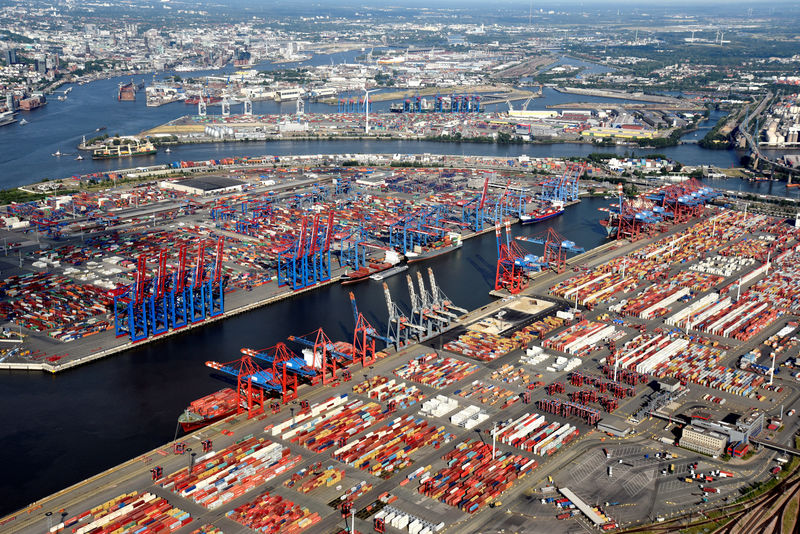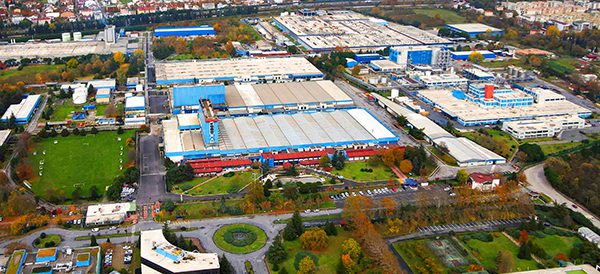 © Reuters. FILE PHOTO: Aerial view of containers at a loading terminal in the port of Hamburg
© Reuters. FILE PHOTO: Aerial view of containers at a loading terminal in the port of HamburgBERLIN (Reuters) – German exports and industrial output both unexpectedly fell in July, in a fresh sign that manufacturers in Europe’s largest economy are suffering from U.S. President Donald Trump’s protectionist trade policies.
The Federal Statistics Office said on Friday that seasonally adjusted exports fell by 0.9 percent on the month, while imports surged by 2.8 percent – the strongest rise in almost four years and a record total volume of 94.5 billion euros.
A Reuters poll had pointed to a rise of 0.2 percent in both.
Trump has triggered trade disputes with China, Europe and many others regions by imposing steep tariffs on a broad range of products in his pledge to protect American jobs against what he calls unfair trade practices.
Germany’s seasonally adjusted trade surplus narrowed to 15.8 billion euros ($18.39 billion) from 19.3 billion in June.
Separate data from the Economy Ministry showed industrial output dropped by 1.1 percent, confounding the Reuters forecast for a 0.2 percent rise.
The ministry said industrial output would likely regain momentum soon after a muted start to the third quarter, which was depressed by “temporary bottlenecks in passenger car registrations under the new driving cycle”.
“Industrial recovery is likely to continue once that backlog of registrations disappears,” it added in a statement.
Global markets are on edge after Trump threatened fresh tariffs on another $200 billion in Chinese imports and China’s commerce ministry said it would be forced to retaliate.
German industrial orders fell by 0.9 percent in July after a revised plunge of 3.9 percent in the previous month, official data showed on Thursday.
Last month, Salzgitter (DE:), Germany’s No.2 steelmaker, warned of a rise in imports into the European Union. It stuck by its financial guidance for the current year despite a strong first half, citing “uncertainty from trade policies and their possible impact”.
Foreign trade aside, Germany’s domestic economy is strong.
The Ifo economic institute said on Thursday it had raised its 2018 growth forecast for the German economy to 1.9 percent from 1.8 percent previously, citing a better-than-expected performance in the first half of the year.
Fusion Media or anyone involved with Fusion Media will not accept any liability for loss or damage as a result of reliance on the information including data, quotes, charts and buy/sell signals contained within this website. Please be fully informed regarding the risks and costs associated with trading the financial markets, it is one of the riskiest investment forms possible.
Source: Investing.com




























